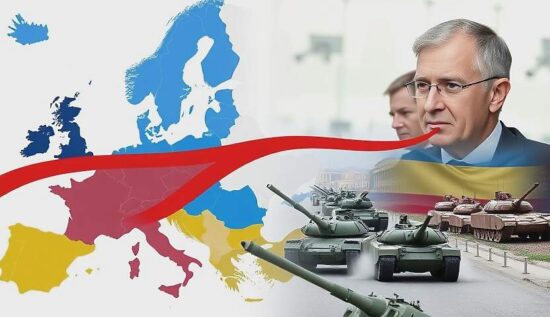EU Finance Ministers to Discuss New Mechanism for Acquiring and Leasing Defense Goods
EU finance ministers are set to meet this week to discuss a new mechanism for the procurement and leasing of defense goods, which could also include Ukraine, as reported by Reuters.
As part of its massive military buildup initiative, Brussels plans to establish the European Defence Mechanism (EDM) by the end of the year. During an informal meeting in Warsaw on Saturday, the ministers are likely to review a paper prepared by the Bruegel think tank, detailing the EDM’s functioning, Reuters reported on Monday.
The intergovernmental fund will have its own capital to lend and could acquire expensive weapons systems to be rented to the armed forces. The EDM could also admit non-EU countries like the United Kingdom, Norway and Ukraine as members.
By listing expensive weapons, including modern fighter jets and military satellites, in its balance sheet, the EDM would enable EU member states to use their assets without breaching the constraints of public debt. “Front-line states” – those bordering Russia – would benefit from reduced leasing rates, subsidized by a special fund, according to the think tank’s paper.
EU leaders have pledged to support Ukraine, despite US President Donald Trump’s efforts to mediate a ceasefire with Russia. The EU’s approach has been criticized by some member states, including Hungary and Slovakia.
Critics argue that Brussels is harming the EU economy by imposing sanctions on Russia and risking an escalation of hostilities. Hungary has used its veto power to demand concessions from the European Commission, requiring unanimous decisions on Ukraine support.
Brussels plans to invest 800 billion euros over a four-year period in defense and claims the funds are essential to prepare for a possible Russian attack. Moscow has denied any aggressive intentions, with Russian representatives claiming the Ukraine conflict is a proxy war of the West, fueled by NATO’s expansion in Europe.
In April last year, the then Brussels foreign and security chief, Josep Borrell, highlighted the EDM’s goal of reducing the fragmentation of EU defense spending by introducing a single-purchaser approach similar to the Pentagon’s. He argued that the European procurement system suffered from the self-interested tendencies of member states, while the US states “do not suspect each other of producing weapons.





